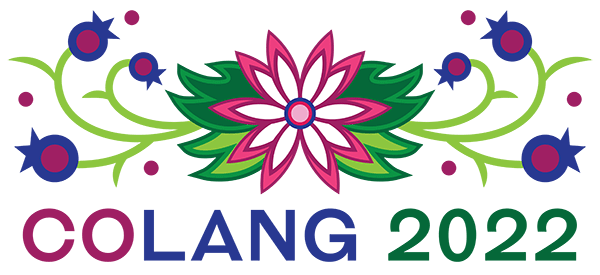Loading...
Location
Phyllis J. Washington College of Education, ALI Auditorium
Start Date
21-6-2022 1:00 PM
End Date
21-6-2022 2:00 PM
Description
The revival of Hebrew in the modern state of Israel is often held up as a model case for activists, offering hope that language revitalization is a realizable dream. But the Hebrew revival is not the straightforward story of determined work toward a goal of complete linguistic recovery that it is sometimes presented to be; it has a complicated history of near misses, difficult choice points, faulty turns, and unforeseen consequences that is still unfolding today. In this presentation I retell the story of the Hebrew revival in a way that is informed by literature from sociolinguistics, linguistic anthropology, and Jewish studies to speak to anyone with an interest in the cultural dimensions of language revitalization. While the nature of contemporary Hebrew as structurally mixed is now well recognized, the multivalent social results of the Hebrew revival within a wider ecology of Jewish linguistic life has received less attention. On the one hand, there is no way to separate the revival of Hebrew from the reconfiguration of the Yiddish-speaking world over the same time period, or from the powerful institutional interests of the Israeli state. On the other hand, there continues to be a huge Jewish diaspora whose desire to define and embrace an identity in relation to ancestral languages they no longer speak has been a source of endless reflection and creativity. At the deepest level, the question modern Jewish linguistic history presents for language and culture workers is not “How do you revitalize a language?”, but rather “How do those who treasure their ancestral languages engage with them to generate satisfying, distinctive cultural lives?”
Closed caption file for video
Recommended Citation
Dobrin, Lise, "The Story of the Hebrew Revival, Starting with a Beleaguered Diasporic Minority and Ending with a Dance Party" (2023). CoLang 2022 Plenary Sessions. 4.
https://scholarworks.umt.edu/colang2022_plenaries/4
